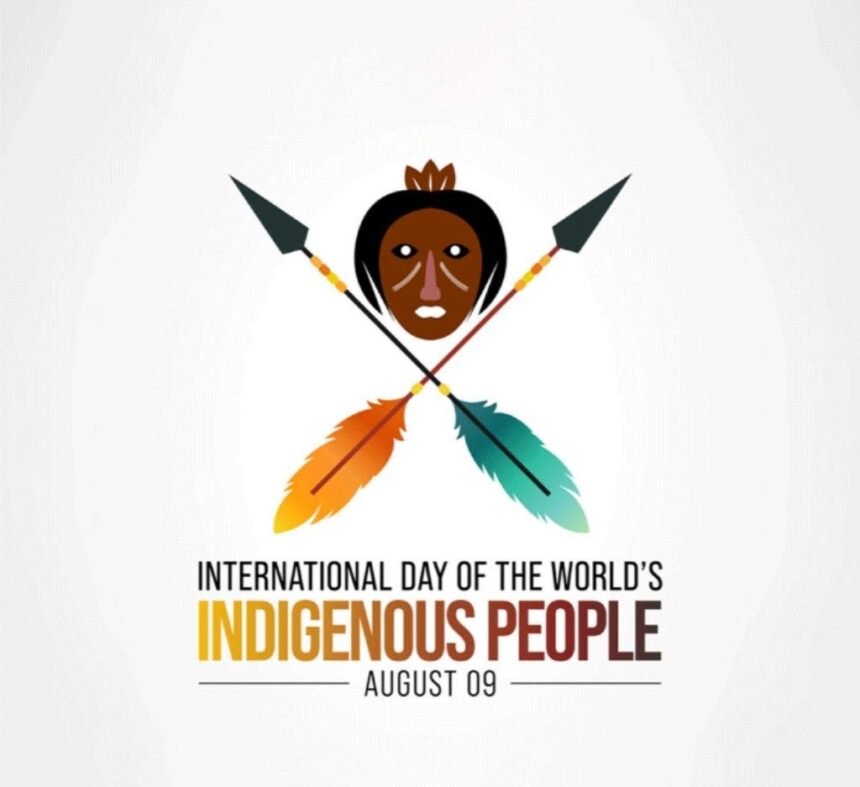🌍 9 Eye-Opening Truths About the International Day of the World’s Indigenous Peoples That Will Inspire You
Every year on August 9, the world comes together to celebrate, reflect, and act in honor of the International Day of the World’s Indigenous Peoples. It’s a vital reminder that over 476 million Indigenous people live across more than 90 countries, each contributing immensely to humanity’s diversity, cultural heritage, and sustainable wisdom—yet still facing systemic discrimination and marginalization.
- 📜 History of the International Day of the World’s Indigenous Peoples
- 📅 Timeline of Key Events
- 🌎 Who Are Indigenous Peoples?
- 📊 9 Eye-Opening Facts About Indigenous Peoples
- ✨ Why August 9th Is So Significant
- 🎉 How the Day Is Observed
- 💌 Wishing Messages for August 9th
- ❓ Frequently Asked Questions (FAQs)
- Q1. What is the goal of the International Day of the World’s Indigenous Peoples?
- Q2. When was this day first observed?
- Q3. Are there Indigenous people in India?
- Q4. How can individuals contribute?
- Q5. Why are Indigenous languages important?
- 🧠 Importance in Our Lives
- ✅ Important Points Recap
- 🌟 Conclusion: Celebrating Roots, Respecting Rights
This article explores the history, timeline, powerful facts, FAQs, significance, human-centered wishes, key observance practices, and the societal importance of this crucial day, written in a warm, relatable tone exceeding 1200+ words.
📜 History of the International Day of the World’s Indigenous Peoples
This special observance was first proclaimed in December 1994 by the United Nations General Assembly. It marks the first meeting of the UN Working Group on Indigenous Populations, which was held in Geneva on August 9, 1982.
The UN declaration was part of a broader movement to acknowledge the rights, identities, and cultural contributions of Indigenous communities, while addressing the widespread historical injustices they have endured—colonialism, forced displacement, exploitation, and cultural erasure.
Since then, August 9 has become a global symbol of Indigenous pride, resilience, and advocacy.
📅 Timeline of Key Events
| Year | Milestone |
|---|---|
| 1982 | First meeting of the UN Working Group on Indigenous Populations |
| 1994 | UNGA declares August 9 as the International Day of the World’s Indigenous Peoples |
| 2007 | UN adopts the United Nations Declaration on the Rights of Indigenous Peoples (UNDRIP) |
| 2015 | Indigenous issues included in the Sustainable Development Goals (SDGs) |
| 2019–2028 | Declared the International Decade of Indigenous Languages |
| 2025 | Continues global efforts in recognizing, revitalizing, and respecting Indigenous communities |
🌎 Who Are Indigenous Peoples?
Indigenous Peoples are ethnic groups native to a particular land or territory. They are the original inhabitants before colonization or the formation of modern nation-states. Examples include:
Adivasis in India
Maori in New Zealand
Sami in Scandinavia
Aboriginal people in Australia
Native Americans in the United States
Inuit in the Arctic
Ashaninka in the Amazon
San/Bushmen in Africa
Each group has distinct languages, traditions, knowledge systems, and ways of life that are often closely tied to nature.
📊 9 Eye-Opening Facts About Indigenous Peoples
🌍 Indigenous peoples account for 6.2% of the global population, yet protect 80% of the world’s biodiversity.
🧬 They speak over 4,000 different languages—many of which are critically endangered.
⚖️ Despite having unique legal and cultural systems, most lack formal land rights.
📉 Indigenous communities often face higher rates of poverty, illiteracy, and unemployment than national averages.
🎨 Their oral traditions, music, dance, and art influence global cultural identities.
🌱 Indigenous farming techniques are now being studied as models of sustainable agriculture.
🧠 Indigenous knowledge systems contain deep ecological insights, passed down for millennia.
💔 Many communities still experience institutional discrimination, displacement, and violence.
🌐 They continue to resist, revive, and thrive—preserving their heritage with dignity.
✨ Why August 9th Is So Significant
This day is not just ceremonial—it is an urgent call to action. It highlights the need to:
Preserve Indigenous cultures
Secure legal rights to ancestral lands
Promote linguistic and educational inclusion
Uphold human rights
Recognize their central role in environmental conservation
🎉 How the Day Is Observed
United Nations Celebrations
Each year, the UN organizes global webinars, forums, and exhibitions focusing on specific themes—such as language revival, women’s rights, or land sovereignty.
Global Civil Society Events
Cultural performances like storytelling, songs, and dances
Panel discussions and policy dialogues
Awareness walks, especially by youth and student groups
Documentary screenings about Indigenous lives
Tree-planting, rituals, or ancestral offerings
💌 Wishing Messages for August 9th
🌿 “Honoring the Earth’s first caretakers—Happy Indigenous Peoples Day!”
🌎 “May your traditions thrive and your voices echo through generations.”
🎶 “From your songs to your stories, the world is richer because of you.”
🧭 “Here’s to the roots of our planet—strong, wise, and resilient.”
✊ “Your fight is our fight. Your culture is our legacy.”
❓ Frequently Asked Questions (FAQs)
Q1. What is the goal of the International Day of the World’s Indigenous Peoples?
To celebrate Indigenous culture, raise awareness about their struggles, and push for justice, inclusion, and protection of rights.
Q2. When was this day first observed?
It was first officially celebrated on August 9, 1995, following the UN’s declaration in 1994.
Q3. Are there Indigenous people in India?
Yes, India has more than 700 tribal communities, known as Adivasis, forming around 8.6% of the population.
Q4. How can individuals contribute?
Support Indigenous brands, learn about their histories, promote language revitalization, participate in events, and donate to advocacy groups.
Q5. Why are Indigenous languages important?
Languages carry identity, history, and worldview—the loss of a language often means the loss of an entire culture.
🧠 Importance in Our Lives
Environment: Indigenous knowledge is key to climate action, sustainability, and biodiversity protection.
Culture: Their traditions offer alternative worldviews—grounded in balance, kinship, and harmony.
Identity: They remind us of the value of roots, place, and purpose in a hyper-globalized world.
Justice: Their continued struggle urges us to reflect on equality, empathy, and fairness.
Spirituality: Many Indigenous systems focus on deep respect for nature and ancestors, influencing global spiritual awakening.
✅ Important Points Recap
📅 Date: August 9 every year
🧬 Population: Over 476 million globally
🌐 Reach: Spread across 90+ countries
📚 Languages: 4,000+ spoken
🌱 Environmental Role: Protect 80% of the world’s biodiversity
🧠 Cultural Relevance: Rich with art, ritual, and ancient knowledge
🧭 Urgency: Threatened by land loss, violence, language extinction
🎉 Celebrated Via: Art, panels, dialogues, community gatherings
🌟 Conclusion: Celebrating Roots, Respecting Rights
The International Day of the World’s Indigenous Peoples is not just a day to celebrate cultures—it’s a reminder of how much we owe to the people who have protected, cultivated, and loved this land long before modern systems arrived.
From their stories and songs to their resistance and resilience, Indigenous communities continue to inspire a more sustainable, respectful, and inclusive world.
In honoring them, we honor the past, take responsibility for the present, and safeguard the future.








